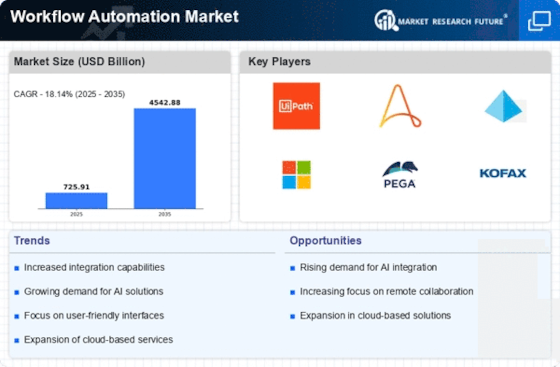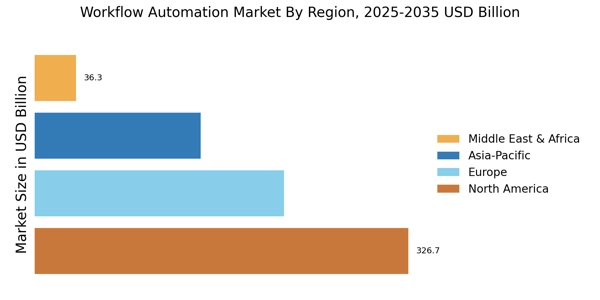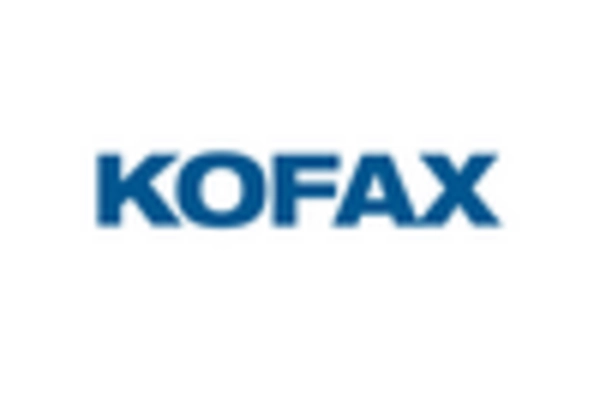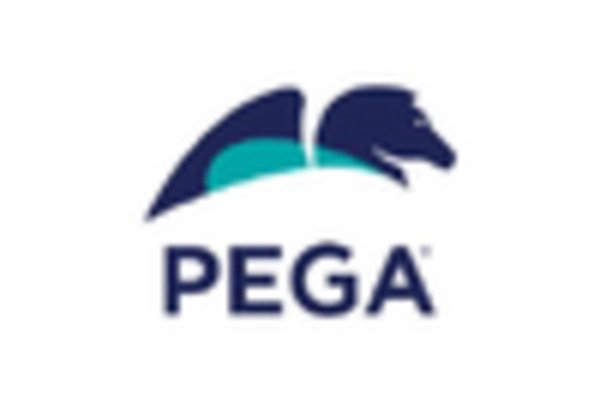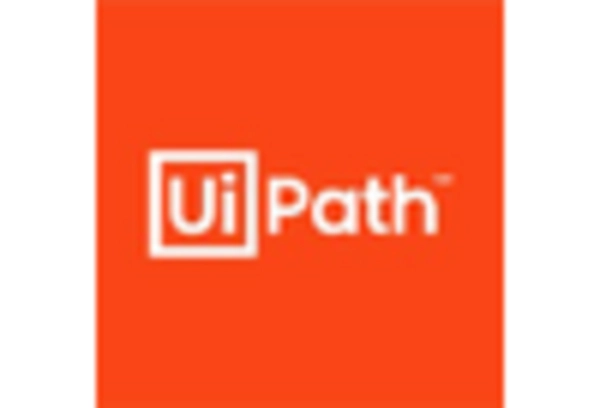Technological Advancements
Technological advancements play a crucial role in shaping the Workflow Automation Market. Innovations in artificial intelligence, machine learning, and cloud computing are enabling organizations to automate complex processes that were previously labor-intensive. For instance, the integration of AI-driven analytics allows for real-time decision-making, which can significantly enhance operational workflows. The market for workflow automation solutions is projected to reach USD 25 billion by 2026, reflecting the increasing reliance on technology to optimize business processes. As these technologies evolve, they are expected to further transform the Workflow Automation Market, making automation more accessible and effective for businesses of all sizes.
Rising Demand for Efficiency
The Workflow Automation Market is experiencing a notable surge in demand for efficiency across various sectors. Organizations are increasingly recognizing the need to streamline operations and reduce manual tasks, which can lead to errors and inefficiencies. According to recent data, companies that implement workflow automation can achieve up to a 30% increase in productivity. This trend is particularly evident in industries such as finance and healthcare, where the need for accuracy and speed is paramount. As businesses strive to enhance operational efficiency, the adoption of automation tools is likely to continue growing, driving the Workflow Automation Market forward.
Emphasis on Customer Experience
The Workflow Automation Market is also being driven by an increasing emphasis on customer experience. Organizations are recognizing that streamlined workflows can lead to faster response times and improved service delivery, which are critical for customer satisfaction. By automating repetitive tasks, businesses can allocate more resources to enhancing customer interactions and addressing client needs promptly. Research indicates that companies that prioritize customer experience through automation can see a 20% increase in customer retention rates. This focus on customer-centric automation is likely to propel the Workflow Automation Market, as businesses strive to differentiate themselves in competitive markets.
Increased Focus on Data Security
In the current landscape, the Workflow Automation Market is witnessing an increased focus on data security and compliance. As organizations automate their processes, they must also ensure that sensitive information is protected from breaches and unauthorized access. Regulatory requirements, such as GDPR and HIPAA, necessitate that companies implement robust security measures within their automated workflows. This emphasis on security is driving the demand for automation solutions that incorporate advanced security features, such as encryption and access controls. Consequently, the Workflow Automation Market is evolving to meet these security challenges, which may lead to the development of more secure and compliant automation tools.
Growing Adoption of Cloud-Based Solutions
The shift towards cloud-based solutions is significantly influencing the Workflow Automation Market. Organizations are increasingly adopting cloud technologies to facilitate remote work and enhance collaboration among teams. Cloud-based workflow automation tools offer scalability, flexibility, and cost-effectiveness, making them attractive options for businesses looking to optimize their operations. Recent statistics indicate that the cloud-based segment of the workflow automation market is expected to grow at a compound annual growth rate of 20% over the next five years. This trend suggests that as more companies migrate to the cloud, the Workflow Automation Market will continue to expand, driven by the demand for accessible and efficient automation solutions.


